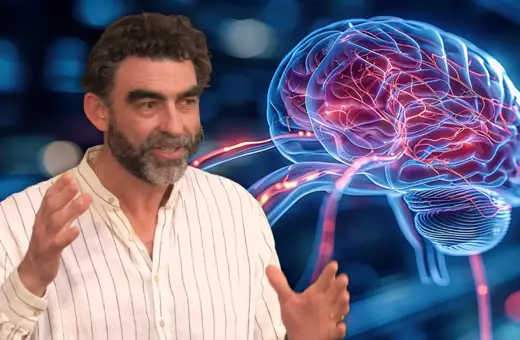Maurice Merleau-Ponty's phenomenological philosophy suggests the search for the self and consciousness need not be focused on the space within our skulls. Instead, we should turn our attention to the lived body.
Our scientific and philosophical search for the self and the place of consciousness in the world has tended to focus between our ears -- although Descartes, as the originator of the modern mind-body problem, held the conscious mind had (as non-material) no location. In the last hundred years or so, materialist-leaning theories have been especially inclined to locate mind and self in the head. In both computational/information-processing and biological theorizing about consciousness and the self, the question to be answered is often seen as one about where to localize this mind/self -- whether those critical properties were best modeled as information processing or as more fundamentally biological.
This is sometimes such a fundamental background assumption that it's even taken by some as fueling a kind of reductio ad absurdum argument against understanding consciousness or the self within a scientific perspective: Reasons for skepticism about reduction or localization of consciousness and self are commonly taken as reasons to infer that we should either (a) prejudge eventual failure for any attempt to scientifically explicate consciousness and self (as advocates of the "unbridgable explanatory gap" like David Chalmers do), or (b) get rid of the notions entirely, as (as anti-self “illusionists” like Thomas Metzinger suggest).
Merleau-Ponty focused on the ways in which our embodiment is central to our consciousness and self.
But in the second part of the twentieth century and continuing into the twenty-first, we've seen movement toward a broader conception of consciousness and self, and no philosopher has been more central in instigating and supporting this idea then Maurice Merleau-Ponty. In particular, Merleau-Ponty focused on the ways in which our embodiment is central to our consciousness and self, pushing away from seeing these as isolatable and reducible phenomena inside the brain and toward seeing them as more distributed and relational features of our lives in the world.
To see the nature of this turn, we need to clarify what the body is taken to be in Merleau-Ponty's outlook. The central role of the body for him is not what we (following him) might call the fleshy body. It is not the body that I see in the mirror, weigh on the scale, treat with medicine; it is not my body taken as an object among other objects in the world. Rather, he has in mind what he calls the lived body, which differs from the fleshy body most centrally in two ways. One, it encompasses aspects of the brain, the sensory organs, and the extension of our biological bodies into the world by means of tools and other familiar objects (such as the blind person's cane); and two, the lived body is our embodiment not as one more object in the world, but as the implicit conduit and mediator of our consciousness of the world.
The lived body is most centrally what accomplishes perception -- the form of consciousness he takes as most fundamental and primordial. Perception is for him an activity of our body in seamless engagement (or as he says, "communion") with the world. It grasps the world, both literally in actions, but more radically, in perception. The lived body for Merleau-Ponty extends from the edge of consciousness where we are aware of things, to the world in which those things are seen felt and heard.



















Join the conversation